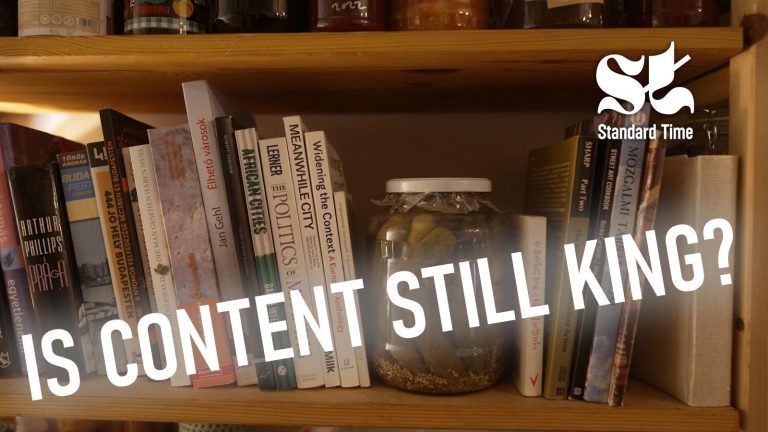The pace of media consumption has accelerated in the past few decades. News cycles have become shorter than ever since then – a trend that began with radio and television and accelerated further with the boom of the Internet. In a time period of ten minutes or less, it is possible to know the weather, local updates and geopolitical analyzes of recent events.
More than 60% of Gen Z and Millennials rely on one or more social media platforms as a news source. They have shifted from traditional means of getting news, such as radio or television, in favor of podcasts and online videos, to name a few. The Internet has certainly become the main source of new information, and has allowed people to diversify their sources on their own, also pushing towards more open source platforms, and challenging the limits of freedom of expression.
Not without government propaganda, the demand for press freedom persists among journalists globally, with censorship practiced on all fronts. Whether through direct state repression, or more subtle algorithmic silencing, journalism is defined by the vehicles it carries.
One thing that remains constant in the face of reinventing the journalistic wheel is that journalists and media producers still need to support themselves financially. According to Dr. Gabor Polyak, young people are more likely to pay for a Netflix subscription than any small news media outlet, making it more difficult to rely on the public to fund the work of journalists.
Fiona Nzingo says building a relationship with the public is one way to get them to pay for journalists to continue working, no matter how unsustainable. Monetizing clicks and views is another thing that has emerged in recent years. However, long-term state and donor funding remains the most reliable sources of income, but this also comes at a price; The push and pull between the constraints of publishing and the ability to do so still prevails.
Cries for independent, self-sufficient media continue to rise, and a mix of different funding sources is still needed to support some ethics. In Europe in particular, there is still a long way to go when it comes to proposing formal strategies to achieve this goal.
Keeping up with the interests of both young and old is constantly demanding, and this competition for attention can be an obstacle to the advancement of news as we know it.
Hear more from our guests:
Fiona Nzingo A journalist from Kenya, he is currently the Director of Membership and Engagement at the Global Media Development Forum. It is headquartered in Stockholm, Sweden.
Dr. Gabor Polyak He is Head of ELTE MÉDIA, Faculty of Media Studies at Eötvös Loránd University, Budapest, Hungary. He is also the head of the research center Mérték Media Monitor.
Vladimir Radinovich He is one of the founders of Podcast.rs from Belgrade, Serbia. He is a member of the Board of Directors of the Community Media Forum Europe.
We meet them in the library of the Faculty of English and American Studies at Eötvös Loránd University (ELTE) in Budapest, Hungary.
Creative team
Rika Kinga Papp, Editor-in-Chief
Murphy Akiel, Artistic Director
Zylvia Pinter, producer
Zsófia Gabriella Papp, digital producer
Salma Shaka, writer and editor
Margareta Lechner, writer and editor
Priyanka Hutchenreiter, Project Assistant
administration
Hermann Riesner General Manager
Judit Ksikos is project manager
Ms. Chela Kardos, Office Administration
Budapest video crew
Nora Roszkay, audio engineering
Gergely Aaron Babai, Photography
Laszlo Halasz, photography
Post production
Nora Roszkay, lead video editor
Dialogue Editor Katerina Kuzmenko
art
Animation by Victor Maria Lima
Cornelia Frischoff, theme music
Captions and subtitles
Julia Sobota Closed caption, Polish and French translation; Manage language versions
Farah Ayyash, translator
Mia Belen Soriano, translator
Marta Verdebar translated into Croatian
Lydia Nadori, translated into German
Katalin Szlukovényi is a Hungarian translator
Daniela Unifazo, translated into German
Olena Yermakova is a Ukrainian translator
Aida Yermikbaeva is a Russian translator
The Martian Zaslavsky movie with Italian subtitles
Hosts
Library of the Faculty of English and American Studies at Eötvos Loránd University (ELTE) in Budapest, Hungary.
sources
Are younger generations turning away from traditional news sources? From Deloitte.
Using social media appears to be diversifying your news diet, not narrowing it By Richard Fletcher and Rasmus Kles Nielsen, NiemanLab.
Introduction to Journalism and Media Finance by Sameer Padania, Macroscope.
disclosure
This talk show is produced by Display Europe: a leading media platform based on public values.
This program is jointly funded by the European Union's Creative Europe Program and the European Cultural Foundation.
Importantly, the views and opinions expressed here are solely those of the authors and speakers and do not necessarily reflect the views of the European Union or the European Education and Culture Executive Agency (EACEA). Neither the European Union nor EACEA can be held responsible for it.



